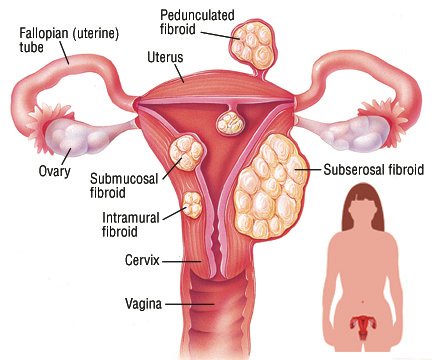

Infertility is a deeply emotional and challenging experience for many women who dream of becoming mothers. While fertility can be affected by various factors such as age, hormones, and lifestyle, the health of the womb (uterus) plays a critical role in a woman’s ability to conceive and carry a pregnancy to term.
1. Uterine Fibroids
What they are:
Non-cancerous growths that develop in or around the uterus, particularly during a woman’s childbearing years.…CONTINUE FULL READING>>>>>
How they affect fertility:
- Can block the fallopian tubes
- May interfere with implantation of the embryo
- May change the shape of the uterus
Common symptoms:
- Heavy or prolonged menstrual periods
- Pelvic pain or pressure
- Frequent urination
2. Endometriosis
What it is:
A condition where tissue similar to the uterine lining grows outside the womb — often on the ovaries, fallopian tubes, or pelvic lining.
How it affects fertility:
- Causes inflammation and scar tissue (adhesions)
- Can block the fallopian tubes
- Interferes with ovulation and implantation
Common symptoms:
- Painful periods
- Chronic pelvic pain
- Pain during intercourse
- Infertility
3. Adenomyosis
What it is:
A condition in which the inner lining of the uterus (endometrium) breaks through the muscle wall of the uterus (myometrium).
How it affects fertility:
- Can cause uterine enlargement
- May impair embryo implantation
- Affects the uterus’s ability to support pregnancy
Common symptoms:
- Heavy or painful menstrual bleeding
- Severe menstrual cramps
- Bloating or pelvic pressure
4. Uterine Polyps
What they are:
Small, soft growths on the inner wall of the uterus, often formed by an overgrowth of endometrial tissue.
How they affect fertility:
- Can interfere with embryo implantation
- May cause irregular menstrual cycles or miscarriages
Common symptoms:
- Irregular or heavy periods
- Spotting between periods
- Infertility without other obvious causes
5. Congenital Uterine Abnormalities
What they are:
Birth defects that affect the shape or structure of the uterus, such as a septate uterus or bicornuate uterus.
How they affect fertility:
- Can prevent successful implantation
- May lead to recurrent miscarriages or premature labor
Common symptoms:
- May have no symptoms until trying to conceive
- Repeated pregnancy loss
6. Pelvic Inflammatory Disease (PID)
What it is:
An infection of the female reproductive organs, often caused by sexually transmitted infections (STIs) like chlamydia or gonorrhea.
How it affects fertility:
- Causes scarring and damage to the uterus and fallopian tubes
- Can block egg and sperm movement
- Increases risk of ectopic pregnancy
Common symptoms:
- Lower abdominal pain
- Pain during intercourse
- Unusual vaginal discharge
- Fever
7. Asherman’s Syndrome
What it is:
A rare condition caused by the formation of scar tissue inside the uterus, often following surgery like dilation and curettage (D&C).
How it affects fertility:
- Scarring can thin or block the uterine lining
- Prevents implantation or causes miscarriage
Common symptoms:
- Light or absent periods
- Infertility
- Repeated miscarriages
8. Uterine Cancer or Precancerous Changes
What it is:
Cancer or abnormal cell growth in the lining of the uterus, often linked to hormonal imbalances or genetic factors.
How it affects fertility:
- May require removal of the uterus (hysterectomy)
- Can damage the uterine lining
- May necessitate aggressive treatment that affects reproductive organs
Common symptoms:
- Unusual bleeding or spotting
- Pain in the pelvis
- Weight loss and fatigue (in later stages)
When to Seek Medical Help
If you’ve been trying to conceive for 12 months (or 6 months if over age 35) without success, it’s important to consult a gynecologist or fertility specialist. Early diagnosis and treatment of uterine conditions can greatly improve your chances of conception…CONTINUE FULL READING>>>>>
